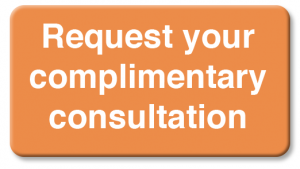Sometimes situations such as an emergency repatriation can present difficult challenges for even a seasoned relocation management professional. Such was the case on a recent request for assistance from a client. A small group of their employees on short term assignment in another country needed to return to the US as soon as possible. GMS was able to quickly assess all of the issues and provide clear guidance to help the client.
Health Precautions Drive Emergency Repatriation Needs
With many nations grappling to control the spread of COVID-19, a number of changes impact employees. Those on business travel face alternate arrangements. Others on assignment find themselves dealing with rapidly changing restrictions on movement.
Responses to COVID-19 across the world include several of the following:
- Shelter-in-place orders
- Limited travel
- Border closures
- Bans on arrivals from designated areas
- Changes to business priorities
Immediate Need Prompts Quick GMS Action
For the GMS client, the need for emergency repatriation rose quickly. Both the US Department of State and the government of the nation where the assignees were located acted nearly simultaneously to announce border closures and further travel restrictions. The client’s relocation services team contacted GMS with a request for immediate assistance.
Once the call came in to GMS, the team was able to act quickly and schedule a needs call within a few hours. Prior to the needs call, the GMS team worked together to determine the optimal solution.
During the needs call, GMS presented the necessary steps for an emergency repatriation. These necessary steps include:
- Visa deregistration
- Flight bookings: GMS contacted our in-house travel desk to identify the latest travel alerts and learn about any additional hurdles that may arise
- GMS discovered that US citizens were being allowed reentry into the US but only at certain entry points and upon arrival they may need to self-quarantine
- Lease negotiation
- Interim medical benefits
- School assistance to help get children out of their current school and registered into a school in the US
- Household goods move – virtual consultation to estimate amount of goods
- Storage of household goods
- Auto shipment
- Virtual departure services including area tour and orientation, home finding, spouse/partner career support, and settling in services
- Temporary living arrangements upon arrival, including solutions if employee would need to self-quarantine
GMS promptly sent a proposal of these services for the client. The client’s leadership team held an emergency repatriation meeting that evening. GMS provided special discounted pricing in order to help the client with a focus on providing immediate service and appropriately filling their needs.
What Does This Mean for Situations such as an Emergency Repatriation?
GMS has a team of experts that help clients address nearly any relocation issue, including an emergency repatriation. Clients should work with a Relocation Management Company (RMC) that has extensive knowledge and experience to help them navigate all of the critical issues surrounding employees on assignment in other nations.
Conclusion
GMS’ team of global relocation experts has helped thousands of our clients understand how to respond to changing travel conditions and international border closures. Our team can help your company understand how to effect an emergency repatriation quickly, while identifying all aspects that should be addressed.
GMS was the first relocation company to register as a .com. The company also created the first online interactive tools and calculators, and revolutionized the entire relocation industry. GMS continues to set the industry pace as the pioneer in innovation and technology solutions with its proprietary MyRelocation® technology platform.
Learn best practices from Global Mobility Solutions, the relocation industry and technology experts who are dedicated to keeping you informed and connected. Contact our experts online for any issue related to an emergency repatriation, or give us a call at 800.617.1904 or 480.922.0700 today.
We're Here to Help! Request a Courtesy Visa Program Consultation
Properly managing a visa and immigration program involves meticulous coordination, precise communication, and worldwide interaction with government agencies, corporate personnel, and relocating employees.
At GMS, we provide you with peace of mind in knowing your mobility program is fully compliant and being managed by the best in the industry.
Request a no-pressure, courtesy consultation from a GMS Mobility Pro. We’ll be in touch within 1 business day.












